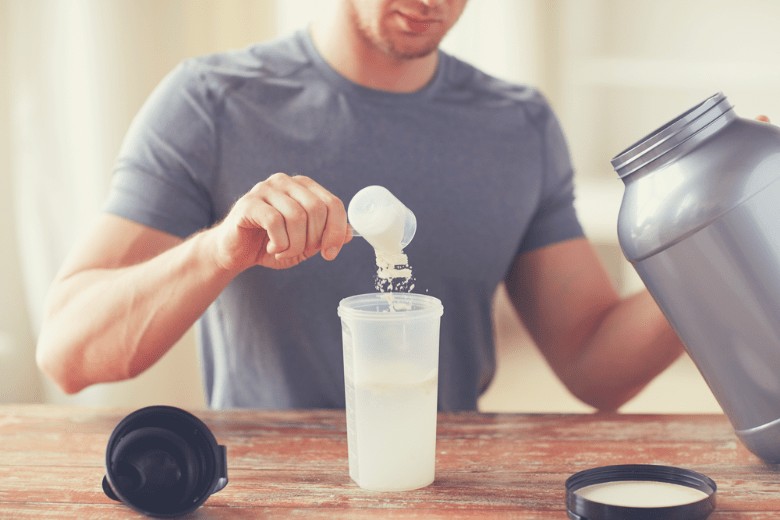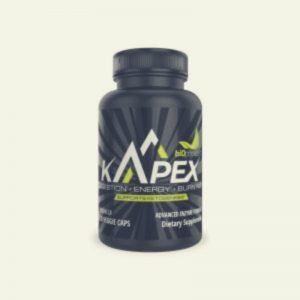When you first start working out, people have all kinds of advice for you. Some of it’s good; some of it’s useless, but either way, there’s a lot of it.
One of the things you’ll hear often is, “Scheduling days off for recovery is just as important as working out regularly!”
This particular piece of advice is crucial. Muscle recovery is an important part of building muscle, and muscle recovery can’t happen unless you give your body time to recover.
Why Is Recovery Time Important?
Muscle Repair
Exercising and working out, whether it’s lifting weights, running or playing sports, does a lot of damage to the body.
None of it is irreparable damage, though, and much of it is actually necessary if you’re hoping to build larger muscles.
While working out, you put tons of stress on your muscle fibers.
As a way of combating that stress and pressure, the fibers start to fuse together in order to become stronger so that they don’t take as much damage the next time you lift that amount of weight.
Of course, once you strengthen your muscles, you’ll then start to lift heavier weights or do more rigorous exercise.
This puts further strain on the recently fused muscle fibers. They respond by fusing together even more to deal with this increased strain, which results in bigger muscles.
However, if you don’t give your body time to recover, the muscles don’t have time to begin fusing and get stronger.
Instead, you just keep piling on the damage, and they have no time to repair it.
It’s the same thing that happens when you break a bone. Your doctor sets it in place and tells you not to use it in order to give it time to recover and knit itself back together again.
Without recovery, your bone won’t heal; the same is true with your muscles. Without recovery, you can’t build larger muscles, no matter how hard you train.
Protein Synthesis
Protein synthesis is one of the key players when it comes to building muscle.
In short, this is the process through which your body creates protein, which is the building block of muscle.
It’s an absolutely imperative process if you’re hoping to build muscle, and one study shows that protein synthesis increases by 50% about four hours after an intense workout during the recovery stage.
Glycogen Replenishment
Additionally, recovery time is important because it gives your body time to replenish the glycogen stores you depleted during your workout.
Glycogen depletion happens when your body runs out of all of its glycogen – a molecule created from ingested carbohydrates – due to extreme exertion.
It can cause all kinds of problems such as exhaustion, muscle cramps, headaches, dizziness, stomach issues and more.
Extreme glycogen depletion can even cause hallucinations and complications associated with severe drops in blood sugar.
Giving your body time to recover between workouts also gives you time to consume more carbohydrates to replenish your body’s glycogen stores.

Why Are BCAAs Important for Muscle Recovery and Growth?
To answer this question, we need to go back to protein synthesis.
As I’ve already mentioned, protein synthesis is at its peak during your recovery time, not while you’re actively working out at the gym.
During this period, your body’s working to build more and more protein, which it can then transform into muscle.
If proteins are the building blocks of muscle, then amino acids are the building blocks of proteins, and BCAAs are a type of amino acid.
What Are BCAAs?
BCAA literally stands for “branched chain amino acids.“ They’re given this name because of their molecular structures, which branch out in noticeable ways.
There are three BCAAs – leucine, isoleucine and valine.
They’re important amino acids for stimulating protein production, and they can’t be naturally produced by the body, which means you can only get them through ingesting specific foods or BCAA supplements.
How Do They Help?
BCAAs are broken down inside the body’s muscles, not in the liver like many other amino acids. This means they’re incredibly helpful in producing extra energy during your workouts.
This extra boost of energy they give can help improve your actual workout performance as well, not because BCAAs are “performance-enhancing” but because they’ll keep you from feeling so fatigued and worn down.
They’ll also keep your muscles from becoming as sore.
This is because the damage you do to your muscles while working out leads to delayed onset muscle soreness, which usually happens between 16 to 48 hours after an intense workout. BCAAs, though, help recover peripheral blood mononuclear cell proliferation and plasma glutamine concentration.
It also modifies cytokine production, all in an effort to combat that soreness.
In simple terms, BCAA supplements will help you feel better after an intense workout, which makes you more likely to go back and work out again.
After all, we certainly don’t like to repeat things that hurt us.
More importantly, though, thanks to the stimulation they provide in protein synthesis, they help increase muscle growth and prevent the wasting away of muscles after they’re formed or during a period of illness.
That’s what makes them so important to muscle recovery and your body in general.
BCAA Benefits Quick List
Before we move on specifically to BCAA supplements, I wanted to summarize the key benefits of BCAAs one final time.
I’ve mentioned most, but not all, of them to you already, but it’s an impressive list, and sometimes it helps to see them all laid out, one after the other. BCAAs:
- Aid in protein synthesis to help build larger muscles.
- Help retain muscle gains, aid in muscle recovery and prevent muscle wasting.
- Cut down on post-workout aches, stiffness, exhaustion and weakness.
- Can aid in weight loss.
- Boost the immune system.
- Provide you with extra energy during intense workouts.
- May help improve mental alertness and focus.
- Can help with certain diseases/illnesses such as liver disease, movement disorders and anorexia.
- Have been linked to the lowering of blood sugar levels in some users.
Looking for clean, highly bioavailable branched-chain amino acids (BCAAs)? This one’s our favorite.
BCAA Supplements
Because of their numerous benefits to muscle recovery, muscle growth and even weight loss, it’s important that you get enough BCAAs.
Although some people argue that you can get all the BCAAs you need through diet alone, that isn’t necessarily true, especially if you’re not a big meat and dairy person, as those are the foods that most often contain BCAAs.
That’s why so many people choose to take BCAA supplements instead, especially if they’re passionate about working out regularly.
Are BCAA Supplements Bad for You?
Since they’ve become more popular, BCAA supplements have caused some controversy.
This controversy can range from doctors claiming the supplements just don’t work to other doctors claiming that they can lead to cardiovascular disease and severe damage to a person’s emotional health.
Overall, though, most research suggests that BCAA supplements are relatively safe.
The few side effects that arise usually only occur if a person is taking a much higher dose than is recommended or has taken them for decades.
If you’re pregnant or have underlying medical conditions, BCAA supplements may not be right for you.
If either of these things applies to you or if you’re concerned about taking BCAAs for another reason, talk to your doctor about it beforehand.
This is good advice for taking any new supplement or attempting any new diet or fitness regime.

Reasons to Try Supplements
It’s obvious that BCAAs do some great things for your workouts, for muscle recovery and for your body in general.
They can even help boost your immune system! You need them; it’s as simple as that.
The question, though, is whether you should try to get them through your food or if you should take supplements.
Here are some of the most common reasons people use supplements.
Your Diet Doesn’t Support Food-Based BCAAs
One of the most common reasons people take BCAA supplements is because they simply can’t get the needed amount through their diets.
As we’ve already mentioned, the best sources of BCAAs are meat, poultry, fish, eggs and dairy. Vegetarians and vegans are largely out of luck with these foods.
There are vegan-friendly foods that can provide you with BCAAs. These include legumes, nuts, seeds and tofu-based products.
However, you have to eat quite a bit of any of these foods to get the daily recommended dose of BCAAs, which is different per person depending on body weight.
For people who don’t eat a lot of these kinds of foods, supplements can be the key to getting the appropriate daily intake of BCAAs.
Fewer Calories
If you’re overweight or worried about putting on extra weight, you, too, may want to consider supplements.
Not only can an adequate amount of BCAAs help in your weight loss goals but getting those BCAAs through supplements as opposed to food can also help you cut down on your daily caloric intake.
Most of the BCAA-heavy foods, including meat, cheese, milk, nuts, etc., can be pretty calorie-heavy.
Drinking your BCAAs as part of a powdered supplement mix or taking them in capsule form can cut down on your calorie consumption quite a bit.
Quicker Absorption/Digestion
Things ingested in powdered form are going to be digested, absorbed and used much more quickly than things that are ingested as part of a meal.
If you’re getting ready for an intense workout, starting to flag in the middle of one or needing something to help you recover afterwards, you may not have time to wait around for your meal to digest.
That’s when drinking a powdered drink mix or popping a capsule and swallowing it down really comes in handy.
This is the same reason people choose to take protein supplements or drink carbohydrate drinks made from powdered protein or carbohydrates.
You’re getting the same great benefits that you would if you were getting these things from food, but you’re getting them a lot faster.
Convenience
It’s the 21st century, and we’re all about convenience. We like things to be easy for us; that’s why there are so many online retailers, fast food joints and e-pay options for bills.
We just prefer things that are quick and simple. Carrying a BCAA-mixed bottle of water to the gym with you is much easier than carting around a 12-ounce steak.
Of course, there are foods that are high in BCAA that are portable – nuts, seeds, beef jerky, string cheese – but still, sometimes it’s just a lot quicker and a lot more convenient to chug down a drink mix than it is to carry around and eat food before a workout.
Final Thoughts
In short, BCAAs are critical to the muscle recovery process, and that’s only a small fraction of the amazing things they can do for your fitness routine and your body.
They have numerous positive benefits that anyone, whether s/he’s into fitness or not, could use and appreciate.
However, BCAAs, like other essential amino acids, cannot be naturally produced by your body. This means you have to get them from outside sources such as food and/or supplements.
People can adjust their diets to try to take in more BCAAs than they’ve been getting, but it requires them to eat a lot of foods that are relatively high in fat and calories, so instead, many people choose to use supplements.
Supplements are a safe and effective way to ensure you’re ingesting enough BCAAs to get the full benefits they offer.
Whichever way you choose – diet or supplements – it’s imperative that you start getting those BCAAs into your system, especially if you’re going to continue to work out and improve your overall fitness levels.
Ready to upgrade your performance and recovery? Check out our favorite BCAA supplement.



